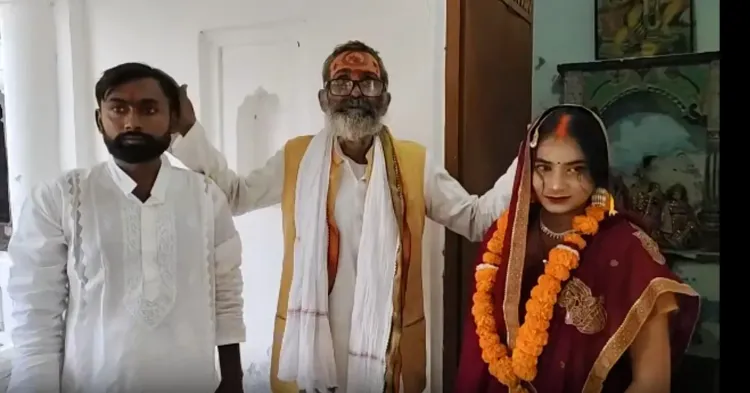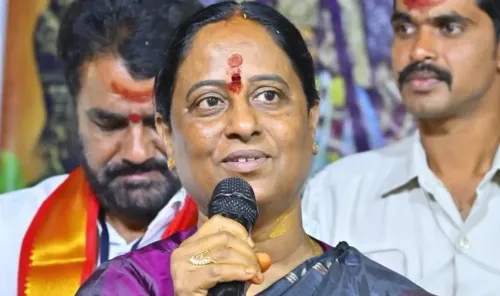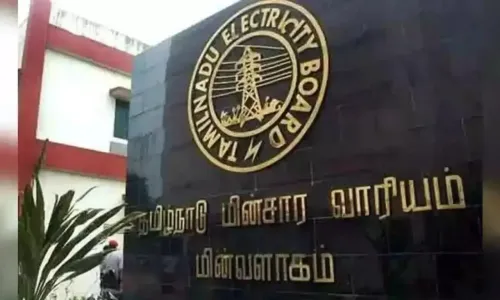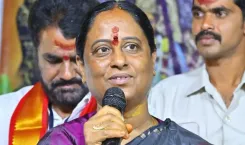How Did a Hindu Youth Marry a Muslim Woman Following Sanatan Dharma Rituals on the 6th Anniversary of the Ram Temple Verdict?

Synopsis
Key Takeaways
- Couple's love transcends religious boundaries.
- Marriage symbolizes hope and unity in diversity.
- Significance of the wedding date aligns with a historic ruling.
- Challenges faced highlight societal pressures on interfaith relationships.
- Positive affirmation of personal freedom and choice.
Ayodhya, Nov 10 (NationPress) On November 9, as the nation commemorated the sixth anniversary of the Supreme Court ruling in favor of the Ram Temple, a Hindu young man in Ayodhya marked the day in an extraordinary manner by marrying his Muslim girlfriend in accordance with Sanatan Dharma traditions.
With Ram Lalla as their witness, the couple exchanged seven vows of life and death, solidifying their bond through marriage and representing a fresh start in their lives.
The groom, Abhishek Yadav, revealed that he has known the girl, Indima, for three years.
“After six or seven months, her family discovered our relationship. Due to her Muslim identity, they were against it and pressured her, which led her to flee,” Abhishek recounted.
He continued, stating that after her disappearance, the girl’s mother accused him of abduction, resulting in an FIR against him.
“Even though the girl was not with me, I was falsely implicated and imprisoned. Upon my release, I made up my mind to marry her. Today, we celebrated our wedding under Hindu customs,” he expressed.
Abhishek noted that while Indima was 17 during the earlier incident, she is now 18 years and two months old.
“We both married of our own accord. We chose today because it marks the anniversary of the Supreme Court’s verdict on the Ram Temple,” he explained.
The bride, Mehak Yadav, also known as Indima Khan, affirmed that their decision was made freely.
“We have been in a relationship for three years. I am now 18 years old. We married according to Hindu customs, and we are very content. My parents previously made false allegations against him, and we now only seek protection,” she stated.
Mahant Sant Das, who officiated the ceremony, remarked, “They have been together for many years. The girl wished for the wedding to be conducted according to Sanatan Dharma rituals.”
On November 9, 2019, a five-judge Constitution Bench led by then Chief Justice Ranjan Gogoi delivered a historic ruling in the Ramjanmabhoomi-Babri Masjid case, deciding that a temple should be built at the disputed location while allocating five acres to the Muslim side for a mosque. This judgment resolved one of India's most divisive legal and religious conflicts.









